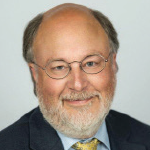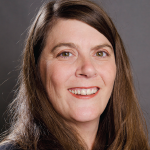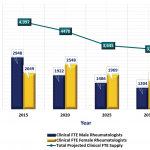The ACR and the ARHP have a long, rich history of collaboration, spanning close to 25 years together. Our predecessors saw the value of an interprofessional team and having an organization that brings together a vast number of constituencies. The result was these two organizations coming together in 1994 when the ARHP became a division of the ACR to meet the needs of all rheumatology professionals.
Our broad constituency includes clinicians in academic and private practice, physician scientists, rehabilitation professionals, researchers, practice managers, pharmacists, social workers, nurses and advanced practice professionals (e.g., nurse practitioners/physician assistants), to name a few. The ACR vision embodies the value of this diverse team: “As the leading authority on and trusted partner of rheumatology professionals, the ACR will continually advance the specialty and the future of rheumatology.” This unique partnership stands out as one of a handful of interprofessional organizations representing all constituents involved in team-based care.
Reflecting on the history of our organizations, we continue to see many of the same challenges faced by our predecessors: funding for training, workforce shortages, research funding, patient access, reimbursement, practice support needs and much more. Although we have continued to thrive, many of these issues seem more daunting than ever. How our organization rises to meet these needs is reflected in the themes of the ACR 2017–2022 Strategic Plan: data-driven approaches, increased membership in targeted categories, education enabled by technology (how, where and when desired), personalized content and targeted member interactions, and sustained future of rheumatology. The ACR/ARHP, along with the Rheumatology Research Foundation, have worked to meet these challenges and themes through the combined efforts of our diverse volunteer-led committees, fundraising and involvement in advocacy.
Data-Driven Approach
In 2014, the Rheumatology Informatics System for Effectiveness (RISE) registry launched and now includes nearly 9.5 million patient encounters (of which more than 2.5 million are RA encounters) encompassing all ages and rheumatic diseases. Under the Medicare Access & CHIP Reauthorization Act (MACRA), rheumatologists can choose various reporting mechanisms to participate in the Merit-Based Incentive Payment System (MIPS), and it’s important to note that—among the options—MACRA created incentives for providers to report via registries—including significant bonuses for reporting via a Qualified Clinical Data Registry (QCDR), such as RISE. 2017 was the first year for MIPS performance data submission, and participation via RISE delivered outstanding results. Every member who completed a full submission via the RISE registry last year qualified for financial incentives. And the majority of these providers received a perfect score and qualified for the largest bonuses.
The ACR is also launching a new association management system that will collect data to help the organization better meet the needs of individual members.
Personalized Content & Targeted Member Interactions
The vision is to leverage our current and new digital platforms to ultimately deliver an improved online experience to our members, allowing them to better navigate and access information, with the ability to personalize resources.
Increased Membership in Targeted Categories
To better address the needs of the diverse constituency of the ARHP, we launched an assessment of nonmembers to identify the needs of the rheumatology health professional community. The organization will use this to further analyze our priorities and future initiatives. The organization also launched the ARHP Is for Me campaign to educate the rheumatology community on our diverse membership and benefits. The ARHP combined our membership categories and broadened the definition to be inclusive of all ARHP constituencies.
As we look to the future and the ACR/ARHP priorities, we want to hear from you: Look for additional needs surveys targeting both ACR and ARHP members during 2018 and 2019. Completing these surveys will help us do our job better.
Education Enabled by Technology
The ACR/ARHP Annual Meeting brings together more than 15,000 rheumatology professionals to network and hear cutting-edge research from experts from around the world. It speaks to our mission to “empower rheumatology professionals to excel in their specialty.” This goal is further advanced by the launch of ACR Beyond, which brings you live-streaming options and online access to core education at your fingertips, when you want it. A variety of online content is available through Rheum4Science, Rheum2Learn, eBytes, CARE modules and the Fundamentals in Rheumatology Course. The end of 2018 will see the launch of the recently revised Advanced Rheumatology Course (ARC), followed by ARC eBytes in early 2019.
Sustained Future of Rheumatology
The workforce shortage in rheumatology is a critical issue that will require increased numbers of providers and innovative approaches to extend the reach of rheumatology practices. In 2018, our combined efforts saw the release of the Core Curriculum to Facilitate the Expansion of a Rheumatology Practice to Include Nurse Practitioners and Physician Assistants. Thanks to the Rheumatology Research Foundation, the first applications are being accepted for the Mentored Nurse Practitioner/Physician Assistant Award for Workforce Expansion, which will be awarded in 2019. We continue to look for innovative healthcare models engaging the rheumatology care team, and several relevant presentations will be held at the ACR/ARHP Annual Meeting in Chicago.
We have been at the forefront of advocacy, meeting with legislators to eliminate the gag clause for pharmacists, which prevents them from informing patients about lower priced alternatives, and to overturn therapy caps for rehabilitation professionals, which make it difficult for patients to receive adequate rehabilitation from the effects of their disease. Our ongoing legislative requests address issues around step therapy, the workforce shortage, research, prior authorizations and pharmacy benefit managers. To keep up to date and help with these efforts, you can access information in our Legislative Action Center.
The Rheumatology Research Foundation continues to offer thousands of dollars in research grants to all rheumatology professionals, inclusive of both ACR and ARHP members, to help individuals remain successful in their career paths at all levels—whether students, residents, fellows or junior or senior investigators.
As we reflect on 2018 and look to the future, we embrace our organization’s promise to the rheumatology community: “We are here for you, so you can be there for your patients.”
Thank you for providing us the honor and opportunity to serve as your volunteer leaders for 2018.
 David I. Daikh, MD, PhD, is the 81st president of the ACR. Dr. Daikh serves as the director of the Rheumatology Fellowship Training Program at the University of California, San Francisco, and as chief of the Rheumatology Division at the SFVA Medical Center, where he directs the Rheumatology Clinic.
David I. Daikh, MD, PhD, is the 81st president of the ACR. Dr. Daikh serves as the director of the Rheumatology Fellowship Training Program at the University of California, San Francisco, and as chief of the Rheumatology Division at the SFVA Medical Center, where he directs the Rheumatology Clinic.
 ARHP President Sandra Mintz, MSN, RN-BC, is a nurse care manager at Children’s Hospital Los Angeles in the Division of Rheumatology. As a clinician, educator, researcher and patient advocate, she is responsible for the coordination of care across the healthcare continuum for pediatric patients living with rheumatic diseases. Ms. Mintz has been a member of ARHP since 2002 and an active volunteer since 2003.
ARHP President Sandra Mintz, MSN, RN-BC, is a nurse care manager at Children’s Hospital Los Angeles in the Division of Rheumatology. As a clinician, educator, researcher and patient advocate, she is responsible for the coordination of care across the healthcare continuum for pediatric patients living with rheumatic diseases. Ms. Mintz has been a member of ARHP since 2002 and an active volunteer since 2003.



